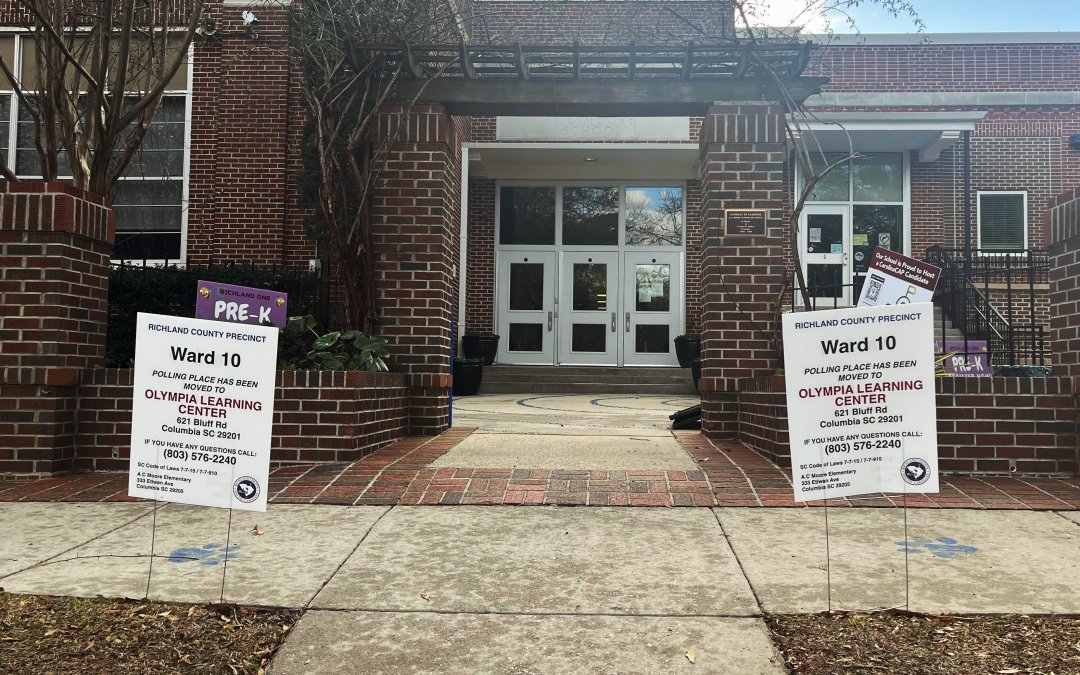COLUMBIA, S.C. — Many South Carolina voters arrived at their usual voting locations on Saturday to find no other voters there, which was an unexpected sight on the day of the state’s Republican primary election. These locations weren’t just empty, however – they were no longer voting locations.
“They had two signs up at the entrance of the parking lot where I normally parked that directed me to this location,” said voter Ben Inabinet.
Inabinet’s typical voting location is Hand Middle School, which is over a mile and a half away from his new voting location, Ben Arnold Center Park. That same location is one that many voters in the area were rerouted to, now counting as the designated voting location for five separate South Carolina precincts.
Many voters were informed of this rerouting through signs posted at their previous voting locations redirecting them to their new locations. Others were informed of the change from neighborhood advisories. Notably, no one learned about this change from the South Carolina state government.
“I got an email from my neighborhood association,” Bailey Davis, a voter in Ward 10 said. “I didn’t get anything from the state of South Carolina.”
Although the South Carolina government quietly put out these voting location changes, it has been proven that increased distance from voting locations has a direct negative impact on voter turnout.
Because South Carolina is a car-heavy state and voter location information was posted online, many voters were able to go to their new voting locations without much struggle. However, In Richland County, an area where 16.2% of the population lived in poverty in 2022, access to motor vehicles and fast internet are not reliable for many.
To let other voters know about voting location changes, many Columbia residents took to using word-of-mouth, informing neighbors about their new polling locations through social media and conversation. Inabinet was informed about his new location by his aunt and Davis found out through a neighborhood-wide message. In some cases, inconsistent spread of this information led to panic among voters in Columbia.
“All the teachers were like ‘I don’t know where my polling location is, they changed it, I got a letter three months ago telling me it changed and I don’t remember where it is,’” schoolteacher and voter Melanie Walker said. “It’s kind of a disaster.”
Despite still showing up to vote, many felt that this sudden location change could have widespread impacts on other voters in Columbia.
“It has an impact,” Davis said. “I’ve never been here before, it’s not super far, but it’s definitely more inconvenient for me versus having it in my neighborhood.”

